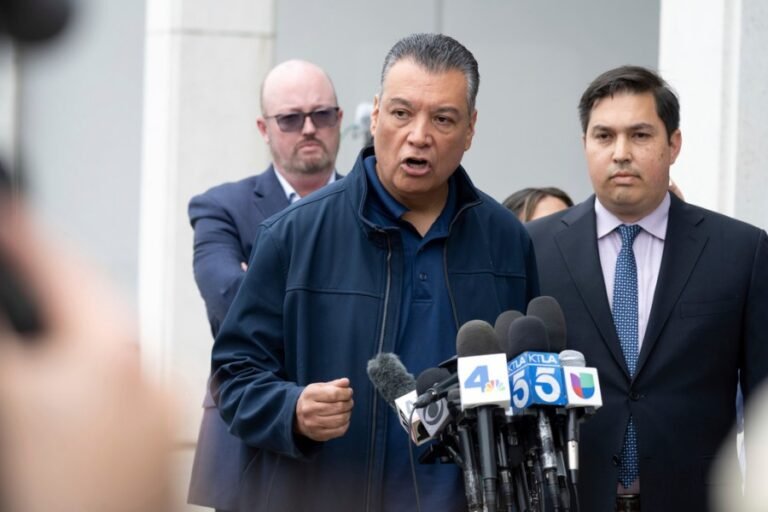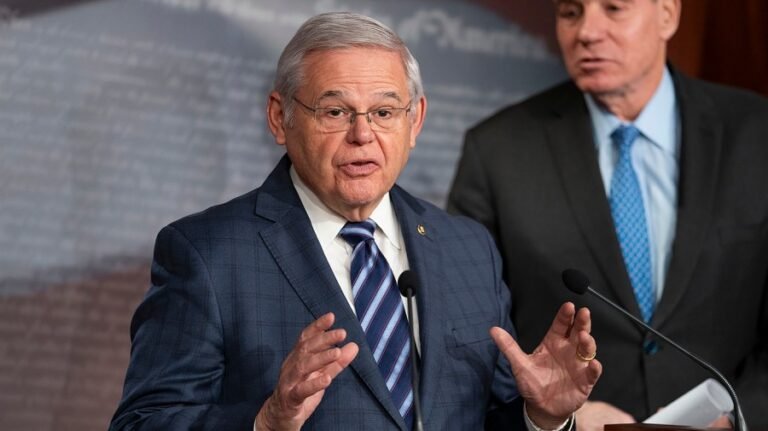
You may have heard that Bill Owens, the executive producer of “60 Minutes,” resigned over what he said was his loss of freedom to make independent decisions. But there are elements of the story the general public doesn’t know.
Let’s first get one thing out of the way. “Resigned” is simply a polite way of saying he was shoved out the door — in order to smooth the way for the sale of CBS’s parent company, Paramount Global, to Skydance Media.
If the deal goes through, Shari Redstone, Paramount’s controlling shareholder, stands to make a lot of money — and according to news reports, she’s anxious to secure the Trump administration’s approval of the multi-billion dollar sale.
The sale needs the approval of the Federal Communications Commission, an arm of the Trump administration. And President Trump, to put it mildly, is no fan of “60 Minutes.”
On his way out, Owens sent a note to the “60 Minutes” staff in which he stated, “Over the past months, it has also become clear that I would not be allowed to run the show as I have always run it. To make independent decisions based on what was right for ‘60 Minutes,’ right for the audience.”
It’s not easy to run a news program when you’re under pressure from your own parent company and from the U.S. president at the same time.
I was a correspondent at CBS News for 28 years. I didn’t know Owens, but I did know the only other two executive producers of “60 Minutes” in its history — one of whom I consider a good friend.
What I learned over those years — but that the general public doesn’t know — is that during its long tenure at CBS (it’s been on the air since 1968), the show has been in the crosshairs before. Several disputes got some play in the press, but some got no publicity at all. Even a lot of people in-house at CBS News didn’t know anything about what was going on at “60 Minutes” — or about how some of the disputes were settled.
But this much every serious journalist does know: You can’t produce a show like “60 Minutes” — a news program that investigates powerful people and institutions — without getting blowback.
Over the years, “60 Minutes” was able to weather the various storms. This time it’s different. The show finds itself trying to survive a “perfect storm” — coming under pressure, as I say, from both its own corporate ownership and from Trump, who could make sure his Federal Trade Commission chairman nixes the Skydance acquisition deal on any number of questionable grounds.
Trump has taken on the media before, but “60 Minutes” has been a special target. About 15 years ago, I was in Scotland with Trump to do a story about his proposed golf course, which was coming under fire from conservationists. Before we started, out of the blue, he laid into Dan Rather for a “60 Minutes” story he didn’t like. In 2020, Trump cut short an interview with Lesley Stahl because he didn’t like the questions she was asking him.
And last year he sued CBS for $10 billion dollars before doubling the amount to $20 billion, claiming that “60 Minutes” deceptively edited a campaign interview with Vice President Kamala Harris in order to help her and hurt Trump. The program also invited Trump on for a preelection interview, but he declined the offer.
“60 Minutes” denies the charge that it deceptively edited the interview with Harris or that the show was out to get Trump.
Personally, I think the show might have done a better job editing Harris’s answer to a question about the war in Gaza. They didn’t use one of her “word salad” responses and skipped to the part of her answer that made more sense. And the reporter didn’t challenge Harris on her nonsensical initial answer. But, as far as I’m concerned, none of that rises to the level of deceptive editing aimed at trying to help Harris and hurt Trump.
Legal experts have called Trump’s lawsuit baseless and far-fetched. I think they’re right. Still, CBS’s overlords at Paramount, we’re told, are in negotiations to settle the case with Trump.
Why would they do that if the lawsuit is frivolous, if this is just one more example of Trump trying to stamp out any criticism aimed at him? This is a man, after all, whose modus operandi involves two key components: intimidation and retribution. If intimidation fails to put an early end to criticism, he moves on to retribution, to getting even with his perceived enemy.
And in this matter, that enemy is “60 Minutes.” Trump recently went after two “60 Minutes” stories, one about Ukraine, the other about Greenland. The stories so offended him that he wrote on his social media platform Truth Social, “CBS is out of control, at levels never seen before, and they should pay a big price for this.”
As the Washington Post explained it, “Paramount Global is seeking a merger with Skydance Media and is awaiting approval from theFCC. As the proposed deal has stalled, CBS staff members are increasingly worried that [Shari] Redstone will do whatever it takes to get it to go through, said two people familiar with the events.”
It’s the “whatever it takes” part that has journalists deeply concerned. They believe a settlement — even an insincere apology — would amount to surrender to Trump. And capitulation would destroy the reputation not only of “60 Minutes” but of CBS News itself, the longtime home of Walter Cronkite, Mike Wallace and many other top-notch journalists.
So all this leads to a question, one more thing that has not generated much interest or curiosity in the media: What will “60 Minutes” look like if the sale to Skydance goes through — and Trump is still around to put pressure on the new owners to make sure the program doesn’t report news about him he doesn’t like?
You can make a case that the future of “60 Minutes” doesn’t look good, that it may devolve into a version of those other flimsy network magazine shows, emphasizing the kinds of soft stories that don’t make waves, the kind of stories that might make corporate big-wigs happy.
But would be the end of the most important news program on television.
Bernard Goldberg is an Emmy and an Alfred I. duPont-Columbia University award-winning writer and journalist. He is the author of five books and publishes exclusive weekly columns, audio commentaries and Q&As on his Substack page. Follow him @BernardGoldberg.


